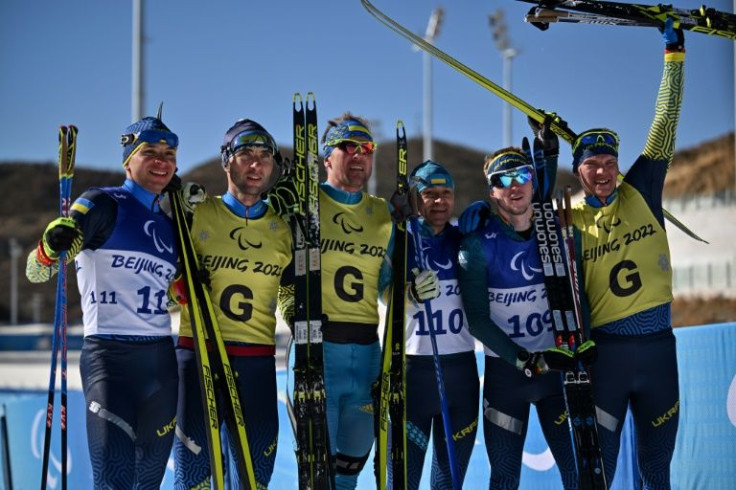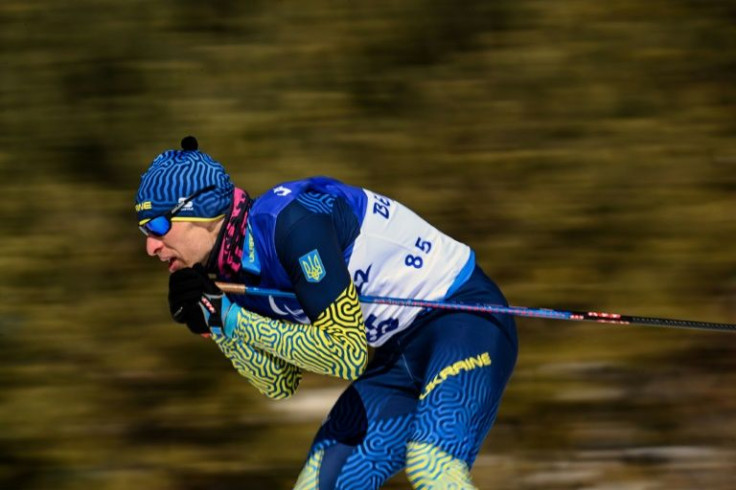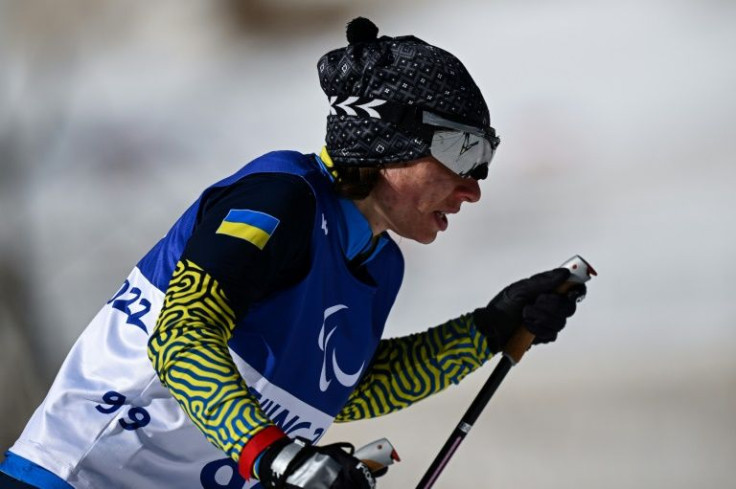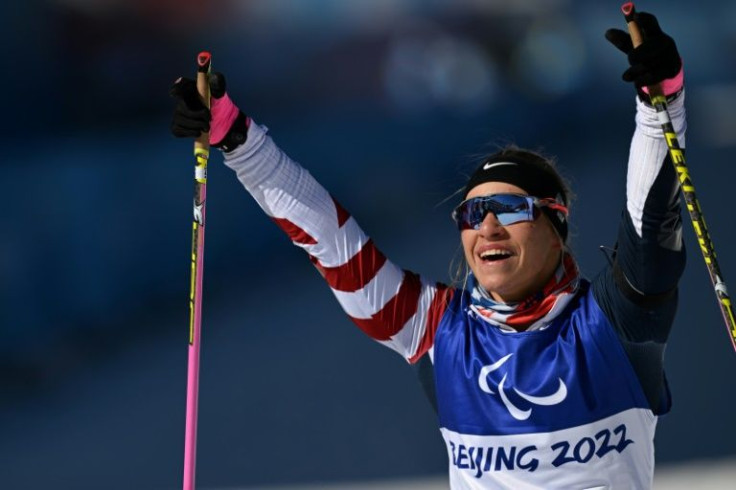Ukrainian Athletes Dig Deep On Day One Of Winter Paralympics
Ukrainian athletes showed resilience in the face of the turmoil engulfing their war-torn homeland Saturday, racing to the top of the medal table on day one of the Beijing Winter Paralympics with an impressive haul of seven.
With more than 1.2 million of their fellow citizens now refugees and fears of a food crisis mounting, the Ukrainian Paralympians on the slopes in Zhangjiakou dug deep.
The team claimed three golds, three silver and a bronze in the biathlon events, just days after an arrival in the capital their top official had dubbed a "miracle" following an arduous journey.

Host country China, meanwhile, grabbed eight medals Saturday, including two gold.
Ukraine made a clean sweep in the men's vision-impaired biathlon race, with Vitalii Lukianenko, 43, adding a seventh Paralympic gold to his collection and 25-year-olds Oleksandr Kazik and Dmytro Suiarko claiming silver and bronze, respectively.
"They are my brothers in sport and brothers in life. We are really close to each other," Lukianenko said after his win.
He urged his relatives in the besieged city of Kharkiv to remain strong.

"I want to dedicate this medal to the guys who protect our cities," he said.

In the men's biathlon standing event, Grygorii Vovchynskyi, 33, also used his victory to pay tribute to the bravery of Ukraine's embattled citizens.
"Ukraine is a big family," he said.
"My gold medal in my first race is for peace in Ukraine, for the people in Ukraine."
Oksana Shyshkova, 30, who is visually impaired, won the women's sprint title in her category, while in the women's standing race, Liudmyla Liashenko finished second.

"Medals mean nothing compared to the lives of relatives and people who have suffered already through war," Oksana said.
A pre-race chat to his family helped spur Rad Taras to the silver in the men's sitting sprint biathlon -- the team's first medal of the day.
"They're safe right now," he told AFP.
Rad said the chaotic lead-up to the event had taken a toll.
"The last week, we spent in Italy, without any equipment. We couldn't train, we just rested and went walking," he said.
"The race was really tough."
He hopes the performance will help lift spirits back home.
"It's a big honour to wear yellow and blue colours and represent my country," he said.
Ukraine-born Oksana Masters, who competes for Team USA, claimed her sixth Paralympic gold since 2012 and dedicated her win in the women's sitting biathlon to her country of birth.
"I'm so proud to be Ukrainian... everything I have learned (as) an athlete... resilience, fighting and working hard, I learned from Ukraine," she said.
The superstar all-rounder -- cyclist, rower, biathlete and cross-country skier -- won a cycling gold at the Tokyo Summer Paralympics six months ago and said the quick transition back to winter sports had been tough.
China found luck on home turf Saturday in the biathlon and alpine skiing events on its way to two gold medals, three silver and three bronze.
While consistently topping the medal tally at the Summer Paralympics, China's first medal for the Winter Paralympics only came in 2018, and it is hoping its largest-ever team of 96 athletes will get more podium finishes this year.
The lead-up to the Beijing Games was marred by high tension in the athletes' village, threats of competition boycotts and an eleventh-hour reversal by organisers of a previous decision to let Russian athletes and those from ally Belarus compete as neutrals.
© Copyright AFP 2024. All rights reserved.





















